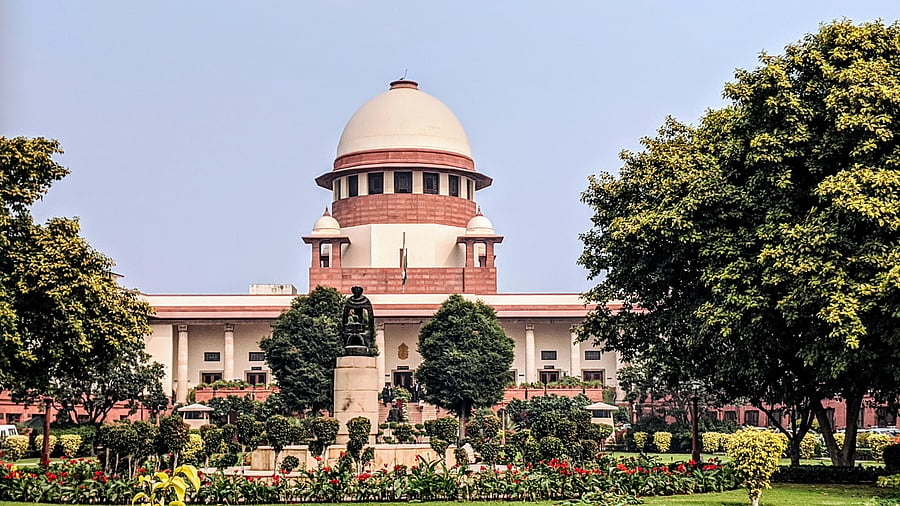
The Supreme Court of India.
Credit: DH Photo
New Delhi: The Supreme Court has dismissed a batch of appeals challenging a Karnataka High Court order that referred to the State Administrative Tribunal (KSAT) a dispute over whether married women can be treated as OBC candidates based on the caste and income certificates of their parents or husbands.
The controversy stems from the 2022 recruitment drive for 15,000 Graduate Primary Teacher posts (Classes 6–8) across 35 educational districts.
A bench of Justices J K Maheshwari and Vijay Bishnoi upheld the division bench’s view that the KSAT is the appropriate forum for service-related disputes arising from the recruitment process.
“We are of the considered view that the division bench of the high court rightly set aside the single judge’s order and committed no illegality in relegating the matter to the KSAT,” the bench observed.
The appeals were filed by candidates whose names were dropped from the OBC category in the provisional select list of November 18, 2022. These married women had applied under the OBC category using caste-cum-income certificates issued in their fathers’ names, not their husbands’.
A single-judge bench of the High Court had earlier sided with the petitioners, ordering that they be treated as OBC candidates and directing a fresh provisional list. This led to the exclusion of 451 candidates who were selected earlier, prompting them to challenge the order before a division bench.
On October 12, 2023, the division bench overturned the single judge’s ruling, reinstated the later select list of March 8, 2023, and asked that remaining issues be decided by the KSAT.
Upholding this decision, the Supreme Court said the High Court should not have entertained writ petitions when an “efficacious alternate remedy” existed.
“No vested right accrued to candidates whose names appeared only in the provisional select list,” the court said, adding that their plea to revive the earlier list was untenable.
The bench also directed that the 500 reserved posts be filled according to KSAT’s final decision and urged the tribunal to decide the matter “expeditiously, preferably within six months.”
The apex court clarified that it had only ruled on the maintainability of writ petitions and not on the merits of the case.
